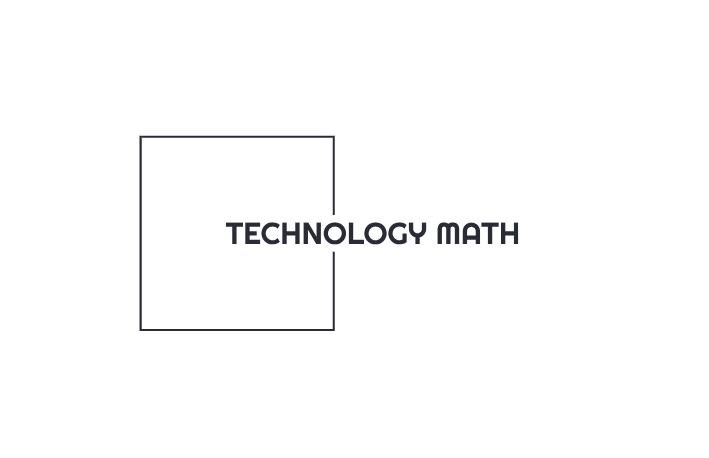
In today’s data-driven world, businesses rely heavily on data to make informed decisions. Data intelligence and analytics are crucial for understanding trends, predicting future outcomes, and improving overall business performance. However, with the increasing importance of data comes the necessity to protect sensitive information. This is where data redaction plays a significant role. Data redaction is the process of removing or obscuring sensitive information from documents, datasets, and other forms of data before they are shared or analyzed. In this article, we will explore the impact of data redaction on business intelligence and analytics, emphasizing how it can both enhance security and affect data utility.
Understanding Data Redaction
Data redaction is often employed to comply with legal regulations and protect personally identifiable information (PII), trade secrets, or any confidential information. It involves identifying sensitive data and either removing it completely or replacing it with placeholders or other characters that obscure the original content. This process is critical for organizations that handle large volumes of data, especially in industries like healthcare, finance, and government.
Types of Data That Require Redaction
Organizations deal with various types of sensitive data, which may include:
- Personally Identifiable Information (PII): This includes names, addresses, phone numbers, Social Security numbers, and any other data that can be used to identify an individual.
- Financial Data: Information related to bank accounts, credit card numbers, and financial transactions must be safeguarded to prevent fraud.
- Health Records: In the healthcare industry, patient records are highly sensitive and must be protected to maintain confidentiality and comply with regulations like HIPAA.
- Corporate Secrets: Business strategies, formulas, and proprietary technologies are often classified as trade secrets and need protection from competitors.
Importance of Data Redaction in Business Intelligence
Business intelligence relies on data analysis to extract valuable insights. However, without proper redaction, the analysis may be compromised by the inclusion of sensitive information. This can lead to several challenges:
- Legal Compliance: Organizations must comply with various data protection laws, such as the General Data Protection Regulation (GDPR) and the California Consumer Privacy Act (CCPA). Non-compliance can result in hefty fines and legal issues. Data redaction ensures that sensitive information is not exposed during the analysis process.
- Data Security: With the rise of cyber threats, protecting sensitive data from unauthorized access is crucial. Data breaches can lead to significant financial losses and reputational damage. By redacting sensitive information, organizations can reduce the risk of exposing data during business intelligence processes.
- Improved Data Quality: Redaction can enhance the quality of data used for analysis. When sensitive information is removed, the remaining data is often cleaner and more reliable. This allows businesses to make more accurate predictions and informed decisions.
Challenges of Data Redaction in Analytics
While data redaction is essential for protecting sensitive information, it also presents certain challenges, especially in the realm of analytics:
- Loss of Context: When data is redacted, the context in which it was collected may be lost. This can hinder the ability to analyze trends effectively. For example, if a dataset containing customer feedback is redacted, understanding customer sentiment may become more challenging.
- Complexity of Automation: Automating the redaction process can be complex. Organizations must use advanced tools, such as PII redaction software, to identify and redact sensitive data accurately. However, these tools may not be foolproof, and manual oversight is often required to ensure data integrity.
- Impact on Data Sharing: In some cases, redaction can limit the ability to share data with external partners or stakeholders. Organizations must strike a balance between protecting sensitive information and ensuring that useful data can still be shared for collaborative analytics.
The Role of Technology in Data Redaction
The advancement of technology has significantly improved data redaction processes. Organizations can now utilize sophisticated software solutions that leverage artificial intelligence and machine learning to identify and redact sensitive information efficiently. These tools can analyze large volumes of data quickly, making the redaction process faster and more accurate.
- AI-Powered Redaction Tools: Modern tools can learn from past redactions and improve their accuracy over time. This allows businesses to automate the redaction process and reduce the chances of human error.
- Integration with Business Intelligence Platforms: Many data redaction tools can be integrated with business intelligence platforms like Power BI. This enables seamless data analysis while ensuring that sensitive information is adequately protected. Additionally, incorporating Power BI training can empower users to leverage these integrations effectively, allowing them to build secure and insightful dashboards, create robust reports, and maintain compliance with data protection regulations.
- Customizable Redaction Policies: Organizations can create customized redaction policies that align with their specific needs. This flexibility allows businesses to adapt to changing regulations and security requirements.
Best Practices for Data Redaction in Business Intelligence
To maximize the benefits of data redaction while minimizing its challenges, organizations should follow best practices:
- Develop a Data Governance Strategy: Establish a clear data governance strategy that outlines how data will be collected, stored, and redacted. This strategy should also define roles and responsibilities for data management.
- Implement Robust Training Programs: Employees should be trained on the importance of data protection and the redaction process. Awareness programs can help create a culture of data security within the organization.
- Regularly Review and Update Redaction Policies: Data protection regulations change frequently. Organizations must regularly review and update their redaction policies to ensure compliance.
- Leverage Advanced Technology: Invest in advanced data redaction tools that can streamline the process and reduce the risk of errors. Tools like PII redaction software can significantly enhance data security and analytics efficiency.
- Conduct Regular Audits: Perform regular audits of the data redaction process to identify any weaknesses or areas for improvement. This can help ensure that sensitive information remains protected.
The Future of Data Redaction and Business Intelligence
As data continues to grow exponentially, the importance of effective data redaction will only increase. Businesses will need to adapt to evolving data protection laws and consumer expectations regarding privacy. The integration of artificial intelligence and machine learning into data redaction processes will likely become more prevalent, making it easier for organizations to protect sensitive information while still leveraging data for analytics.
- Emerging Technologies: Technologies like blockchain may also play a role in enhancing data security. Blockchain can provide a secure and transparent way to manage and share data, ensuring that sensitive information remains protected.
- Increased Focus on Privacy: Consumers are becoming more aware of their privacy rights. Businesses will need to prioritize data redaction and protection to build trust with their customers and comply with regulations.
- Collaborative Data Sharing Models: Future business intelligence efforts may focus on creating collaborative data sharing models that emphasize privacy. Organizations will need to find ways to share insights without compromising sensitive information.
Conclusion
In conclusion, data redaction is a critical aspect of business intelligence and analytics. It ensures the protection of sensitive information while allowing organizations to derive valuable insights from their data. While challenges exist, such as the potential loss of context and the complexity of automation, the benefits of data redaction far outweigh the drawbacks. By implementing best practices and leveraging advanced technologies, businesses can enhance their data security and analytics capabilities, paving the way for a more informed and data-driven future.
As businesses navigate the complexities of data management, the impact of data redaction on business intelligence will continue to shape how organizations operate. By prioritizing data protection and adopting innovative solutions, businesses can ensure that they remain competitive in an increasingly data-centric world.






